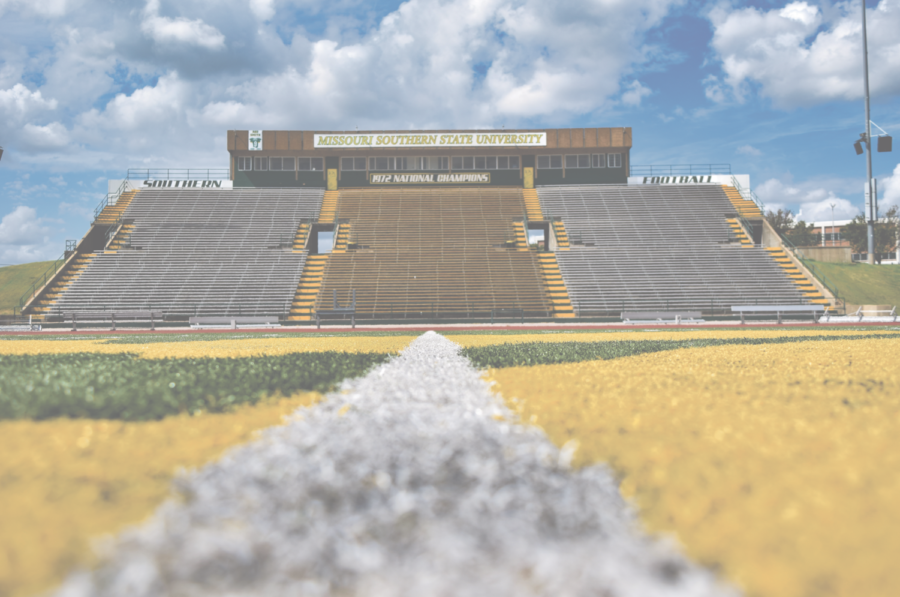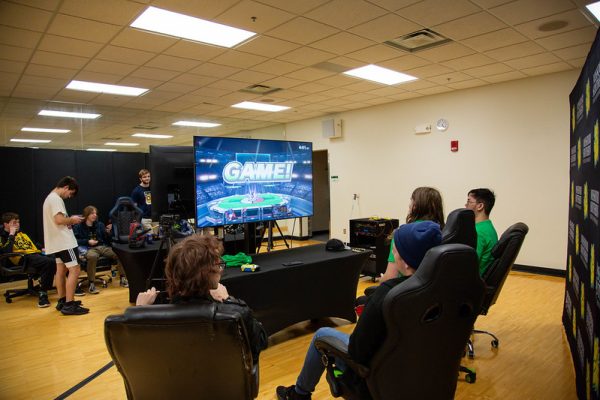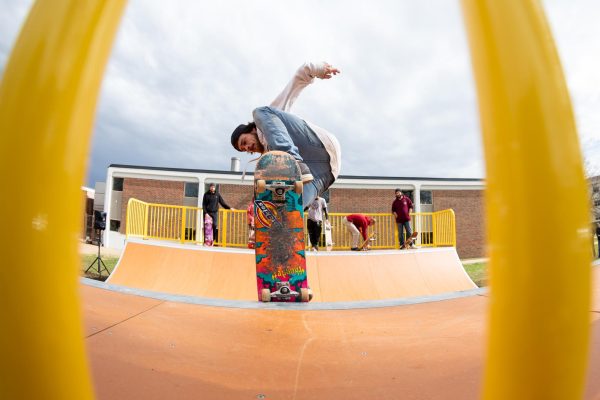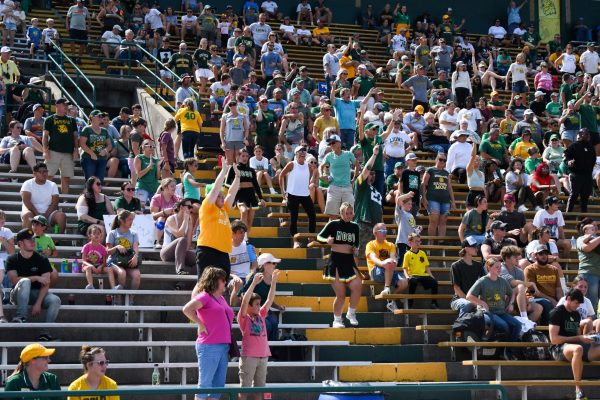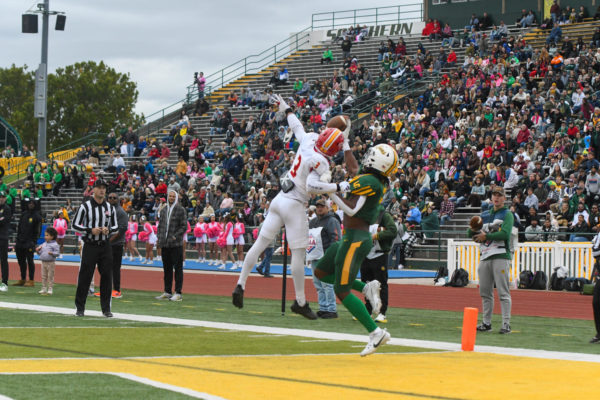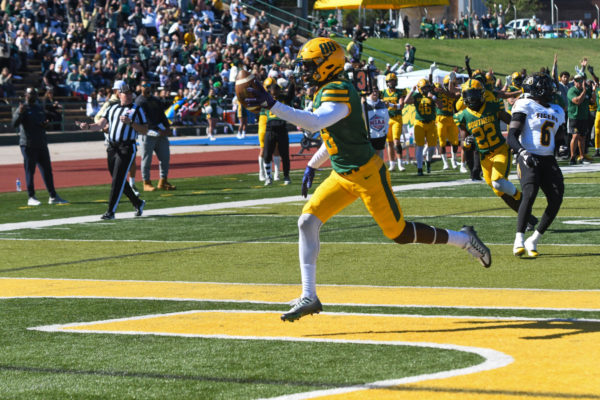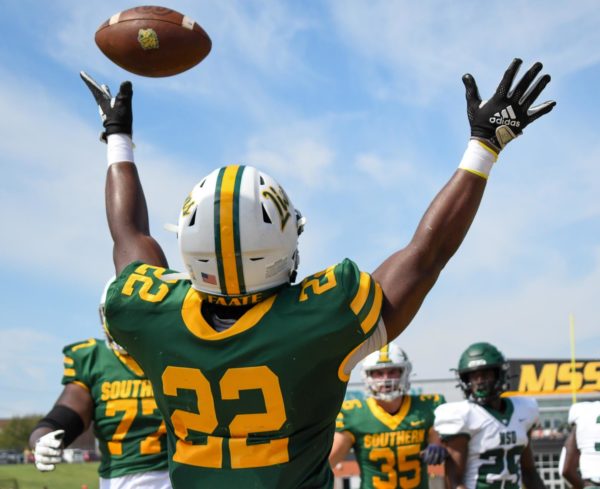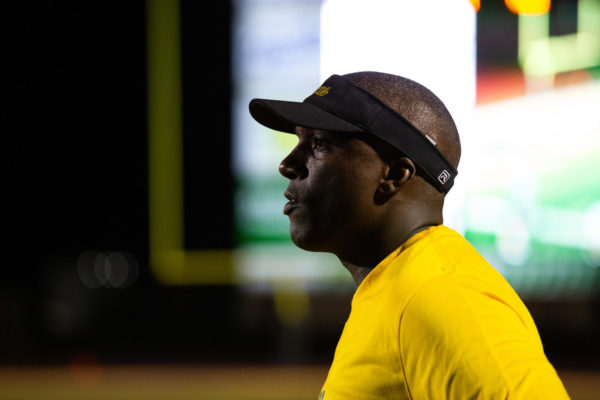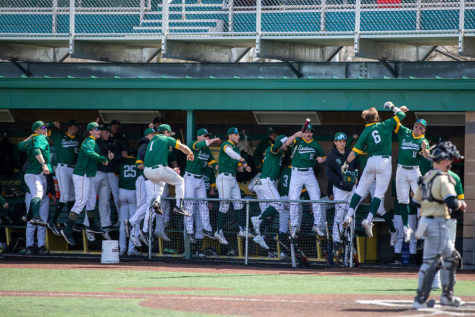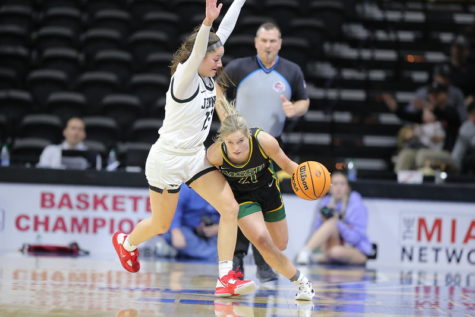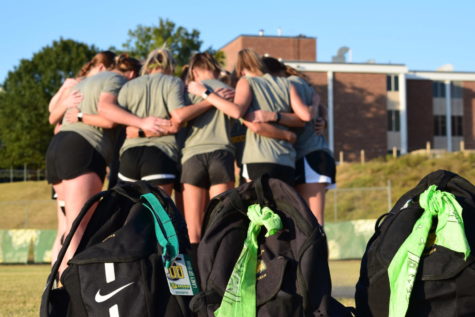MIAA cancels fall and winter sports, NCAA will not cancel aid
Fred G. Hughes statium will remain vaccant this fall due to the NCAA decision to cancel fall and winter athletics.
On Aug. 14, The Mid-America Intercollegiate Athletics Association announced they would be cancelling all athletics until at least Jan. 1, 2021. Thousands of student athlete’s seasons across the conference postponed until further notice. Students have had many questions as to when to expect a resolution and how the cancellation of fall sports affects them in specific.
The National Collegiate Athletic Association said you’re not allowed to cancel aid, based the decision to suspend athletics, due to the coronavirus pandemic.
“We obviously have expectations that our student athletes are still going to be student athletes, said Athletic Director, Jared Bruggeman. “Still going to class, still doing practices, still working out. While they may not have any competitions this fall, some of the sports may be able to compete in the spring.
The NCAA’s Division II eligibility clock allows students 10 semesters of playing time, the restrictions put in place are to have no affect on athlete eligibility.
When the decision to cancel athletics was made last semester winter sports were in the middle of their playoff run, and spring sports had been under way for about a month. While winter athletes will not receive another season of eligibility, spring athletes who wish to compete another season, will.
“The athletes from last spring– some of the baseball and softball players, if they want to return– if they were a fifth-year senior, or if they were graduating their aid could be continued. They’re able to get that season back and compete again this upcoming spring,” said Bruggeman.
Although the MIAA conference has cancelled fall sports, many high schools around the Southern community are going forward with their football season.
The decision to follow through with high school sports in our community has been difficult for members of the community to understand but community dynamics account for cancelations at Southern.
“We have different dynamics, Missouri Southern itself as a campus is as big as many communities in Missouri, said Bruggeman. “We just have bigger dynamics than what you would see at a local school.”
Following Missouri Gov. Mike Parson’s decision to reduce Higher Education funding by $27.9 million, budget cuts were issued university wide. Athletics also had to make cuts.
Missouri Southern’s Athletic Department’s operational accounts were cut by 20 percent, and athletics have also cut all operating costs by 20 percent.
“There have been more selected cuts to get to a dollar amount to help with the lack of funding happening at the state and institutional level, said Bruggeman. “The standard across campus was ten percent we did twenty percent.” Bruggeman’s goal is to make sure campus stays open. Athletics plays a crucial role in making sure the University continues in-person interactions, but acknowledges the importance and difficulties of providing the athletic experience.
“Incoming freshman deserve an opportunity to have great experience like everybody else did as well, and that’s challenging in these times,” said Bruggeman.
Still weeks away from a decision on whether or not to suspend winter sports, Southern and the MIAA are taking all aspects into account to come to a conclusion that is best for all that are involved.
“Sports brings a chance to unify students and the community,” said Bruggeman.
Your donation will support the student journalists of Missouri Southern State University. Your contribution will allow us to purchase equipment and cover our annual website hosting costs.



















